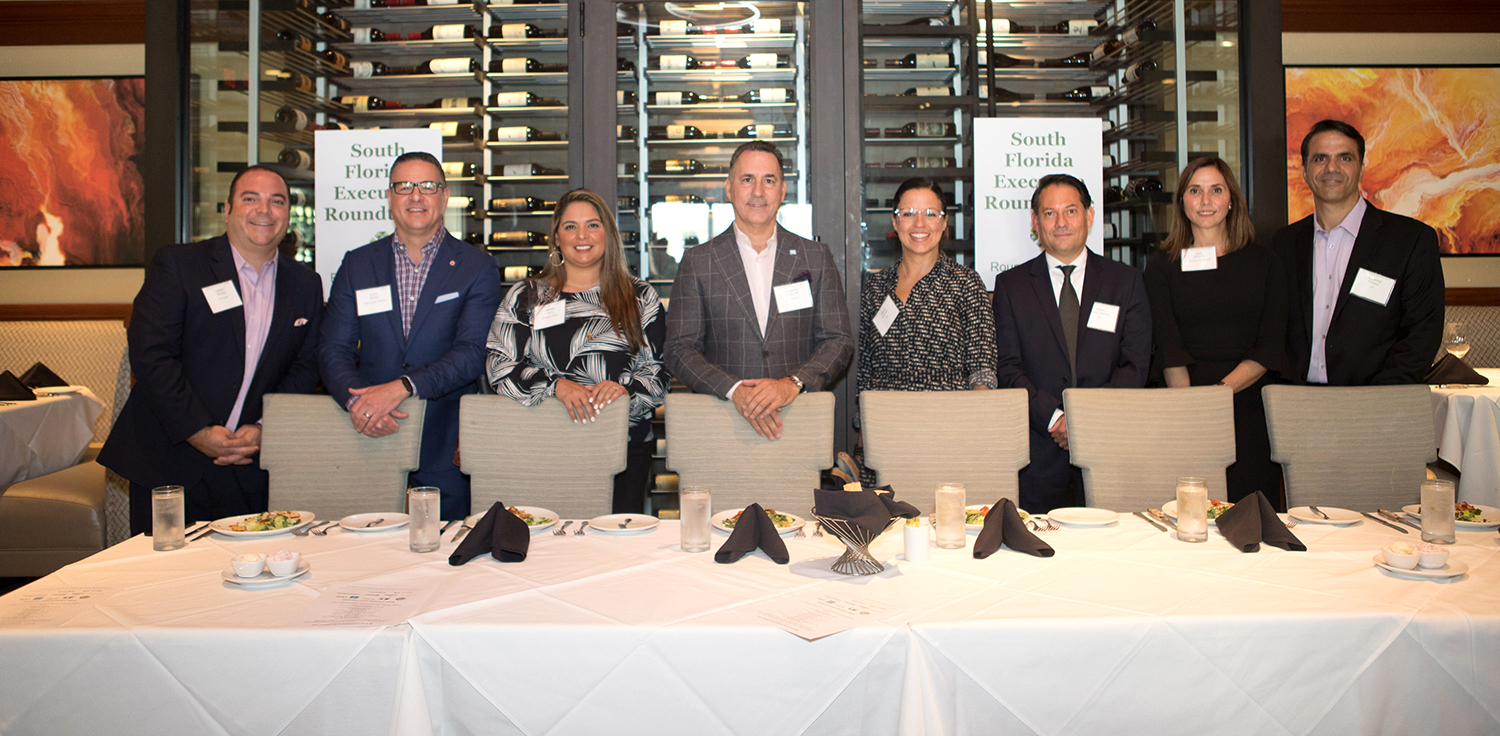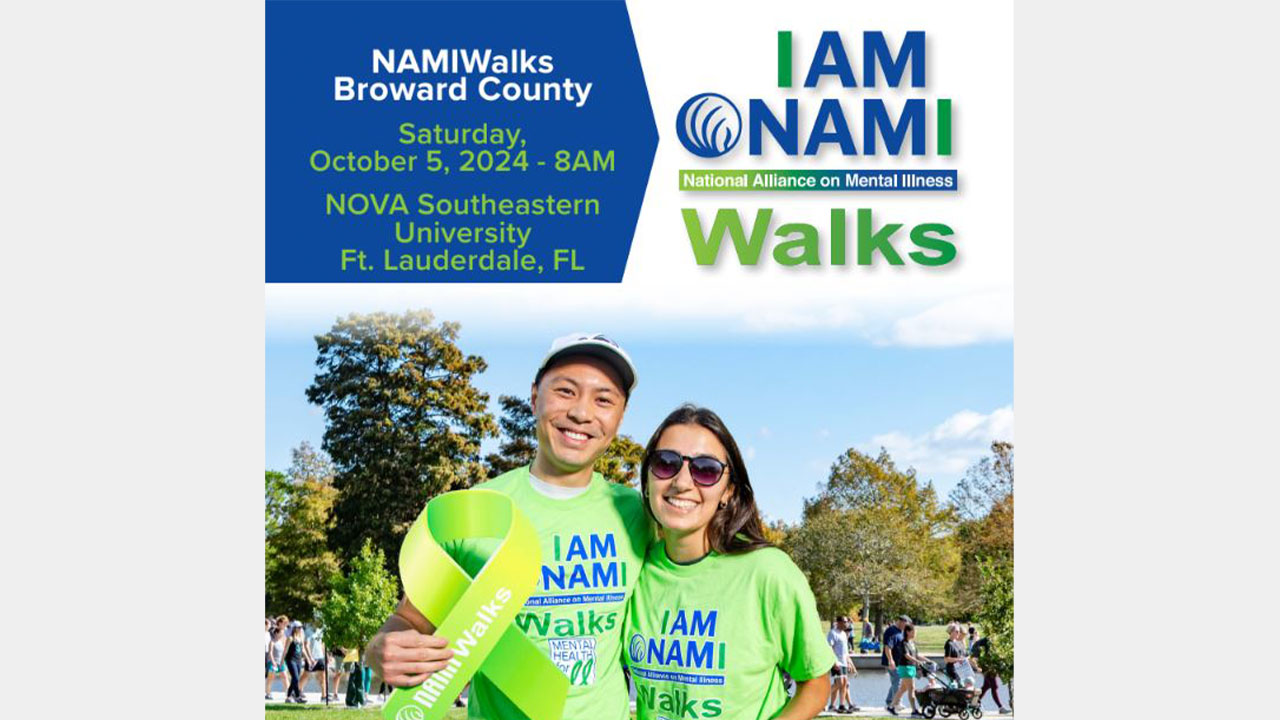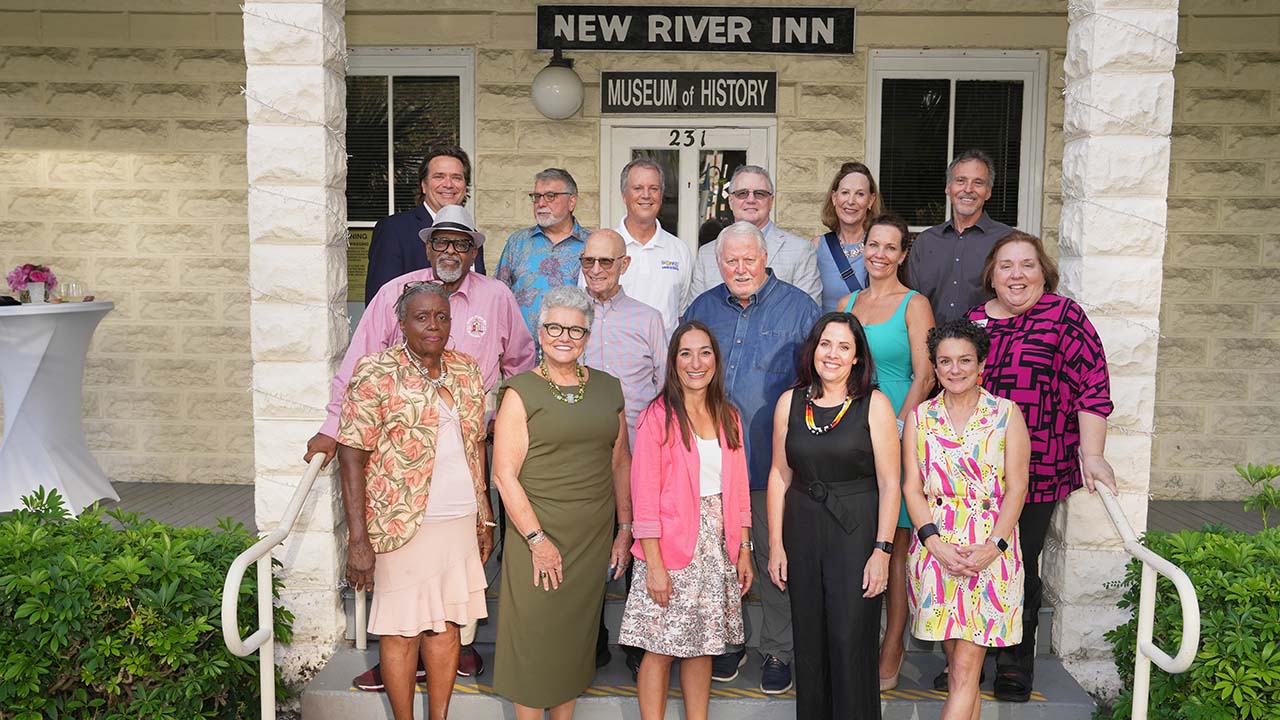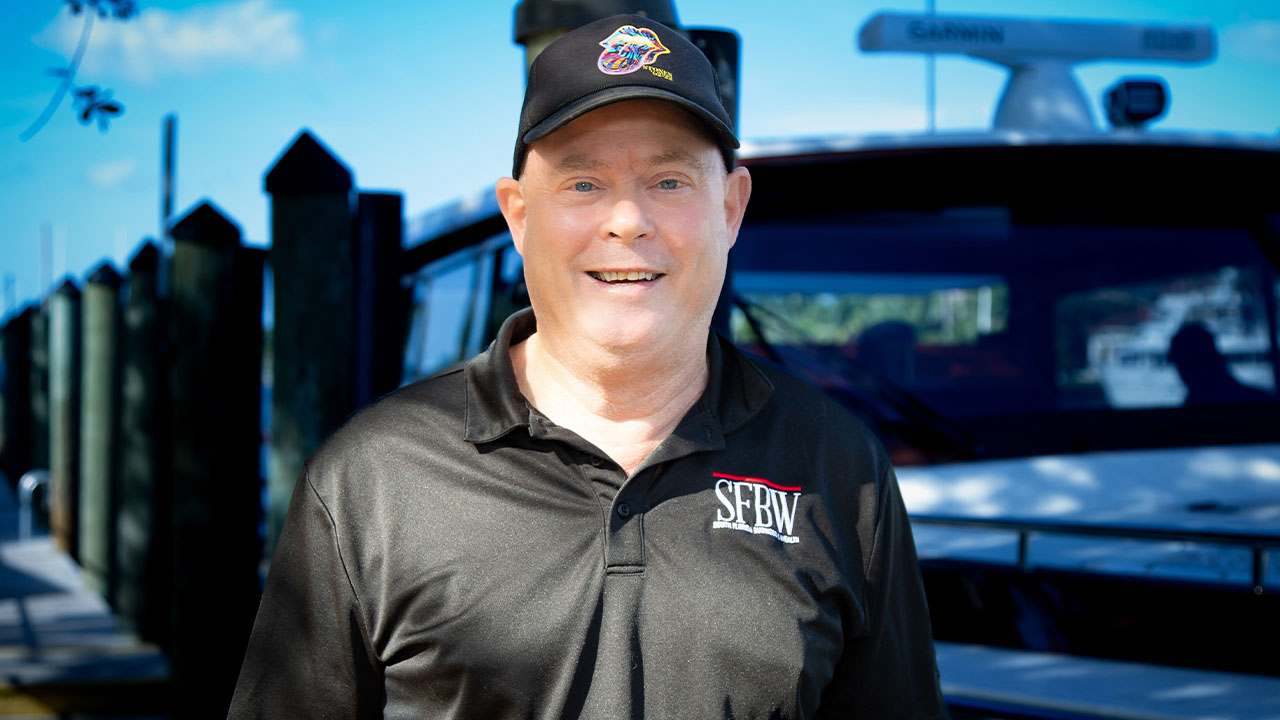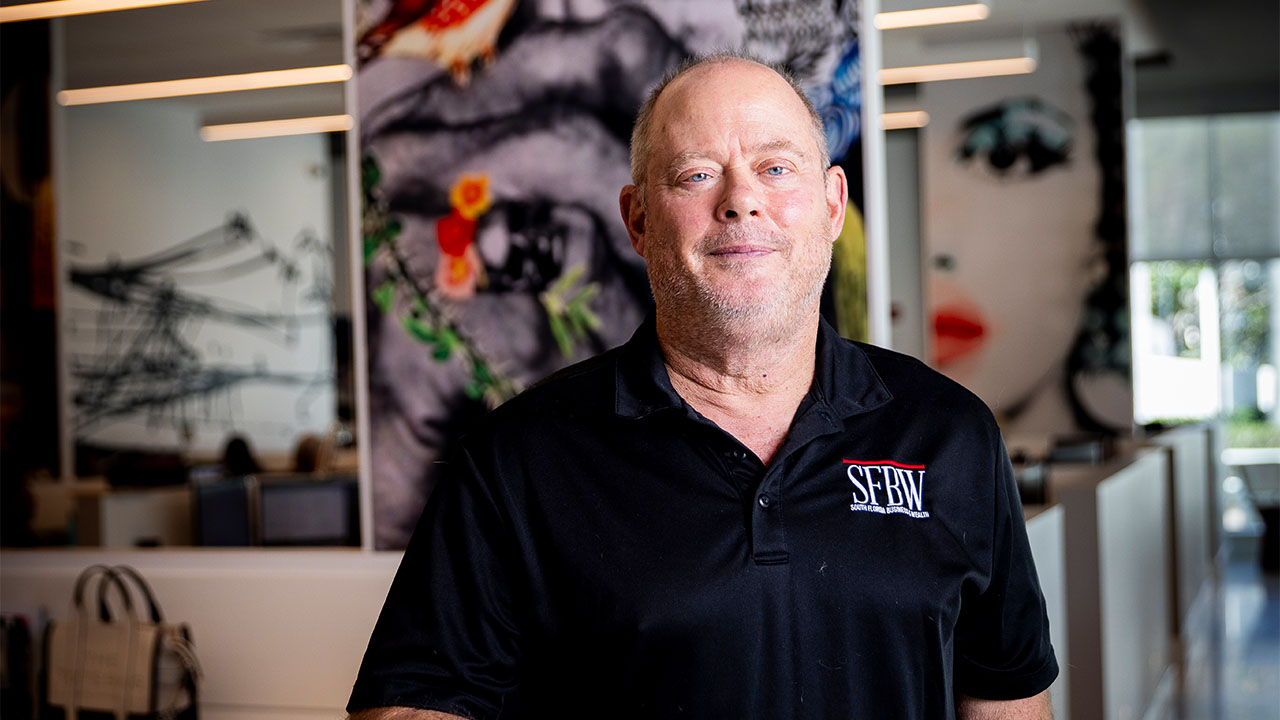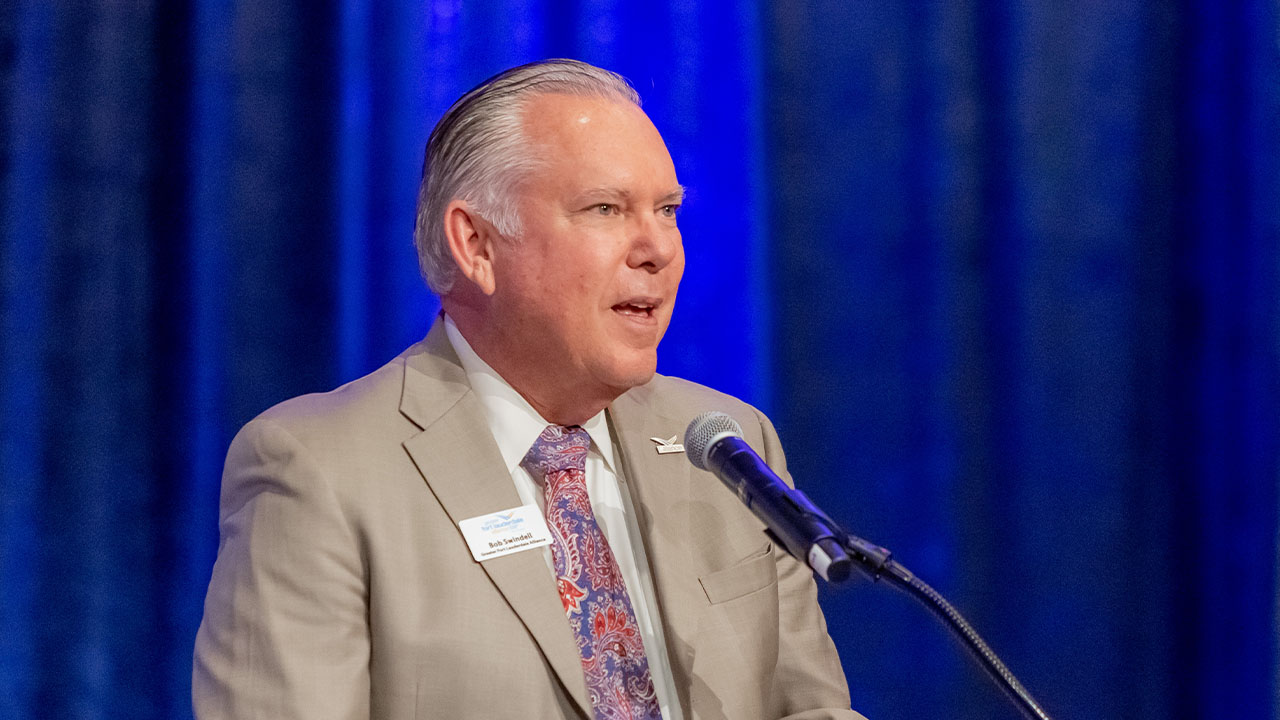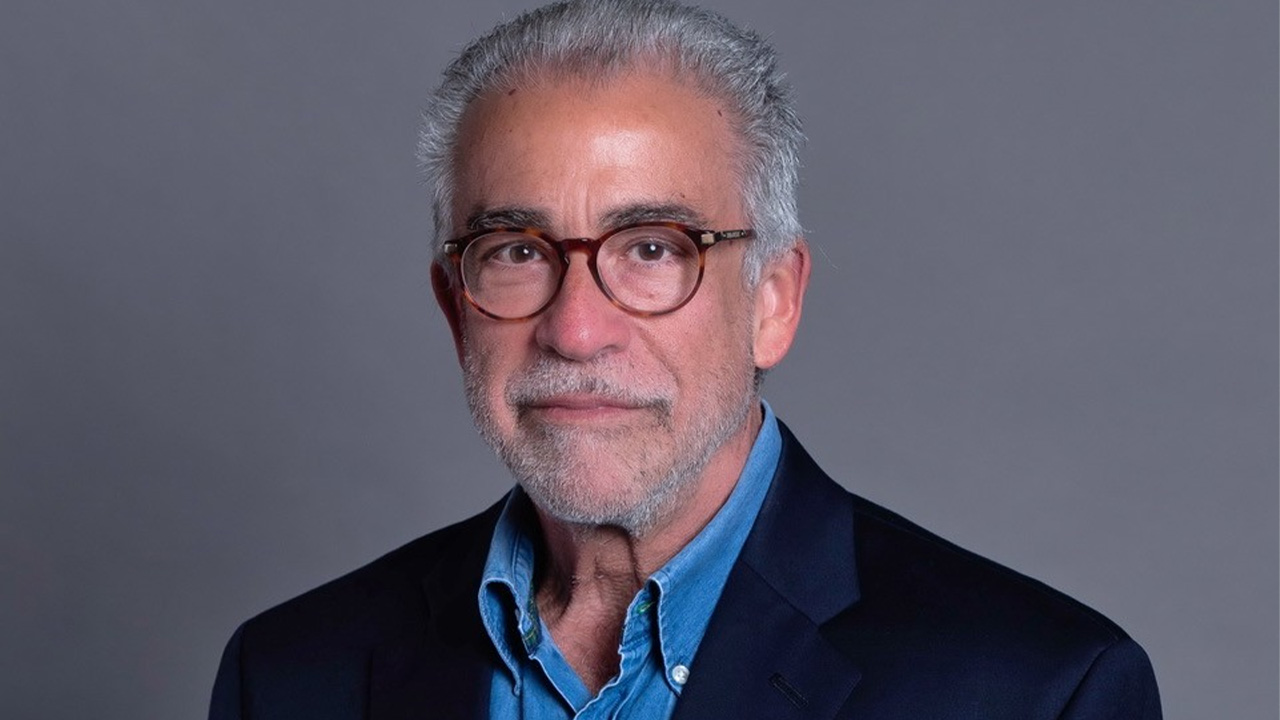[vc_row css_animation=”” row_type=”row” use_row_as_full_screen_section=”no” type=”full_width” angled_section=”no” text_align=”left” background_image_as_pattern=”without_pattern”][vc_column width=”2/3″][vc_column_text]
The South Florida Executive Roundtable had a rousing discussion on fast technological advances during a panel discussion at Fleming’s Steakhouse in Coral Gables.
Moderator Michelle Martinez Reyes, chief marketing officer at Greenspoon Marder, kicked off the discussion by asking panelists about the fastest technological advances or innovations happening now and what’s ahead.
Arthur Noriega, CEO of Miami Parking Authority, started by asking how many audience members were using the Pay by Phone app. A good portion of the audience raised their hands, confirming how we’ve gone beyond the era of sticking quarters into meters.
“Our industry, parking alone, is not all that sexy. It was really was stuck in the Stone Age for most of the ’70s, ’80s and ’90s. And then, really, about 9-10 years ago, there was major disruption in terms of technology, it was all based on how you collect the revenue,” he said.
The city has been using Pay by Phone for nine years now and was one of the first adopters in the nation, he said. He estimates 93 percent of people now use the system. The ubiquity of app use has allowed the authority to cut the number of payment machines from 650 to barely over 300. The goal is to take all of the machines off the street, which has already happened in a lot of European and South American cities.
What’s ahead? The parking authority has a pilot program in Coconut Grove with sensors in the ground to track real time data. “We use a lot of analytics, a lot of algorithms,” Noriega said.
Physician Alejandro Badia, chief medical officer and founder at OrthoNow, said he’s looking at digital health technology, which is “a big event.”
“I’ve been doing telemedicine, mostly for international patients for about five years. It makes sense because they don’t have access to me. But you know, if you look at Miami traffic, where it’s going now is using telemedicine,” he said.
He said a big challenge is engagement, which is a reason he wanted to be on the panel.
“We’re trying to figure out what buttons we are to press, so that people say, ‘OK, I threw out my back, or cut myself washing dishes, or my kid twisted their ankle,’ and they’re going to think, ‘Go to OrthoNow,’ not ‘Go to hospital.’ You break your femur, you hit your head, you go to hospital.”
Better customer service needs to be emphasized, which technology can help to a point, he said. “So, there’s technology, but in the end, we are health care—you have to care. That’s a big component.”
Militza Gonzalez, head of communications for Latin America at Cisco, talked about the ubiquity of digital transformation.
“We have become a digital society,” she said. “We’re all connected. We use more than one device at a time sometimes. So, if you are not able, from a business perspective, to realize that and interconnect those dots and understand that it’s people connected to people through devices and doing transactions online, I think you’re missing a big business opportunity and your business might disappear.”
Ruben Salazar Genovez, senior vice president and head of products and solutions for Latin America and the Caribbean at Visa, said technology, such as apps, are creating a big transformation in how payments are made.
“So, the challenge for us is to be present where commerce is present,” he said. It’s vital that credentials and transactions are secure wherever they happen.
He said payment arrangement will be more like the relationship consumers have with their electricity. “Because without those relationships, you won’t be able to participate in a digital economy,” he said.
In the past, transactions were heavily reliant on payment terminals. “Now transactions and payments are happening everywhere, but you don’t need a terminal in order to participate in this transaction. So how are we going to participate in an environment where the terminal doesn’t exist? How are we going to continue to provide security for the consumer industry? [That] brings me to the to the last point: Commerce is happening even without human intervention. I mean, machine-to-machine commerce is happening right now and everywhere.”
Visa is tracking and investing in multiple technologies, such as artificial intelligence, which he thinks will enhance the network. Another key technology is biometrics. “Biometrics means that you won’t need to have your plastic or your phone. You will be carrying your own credentials with your own biometrics.”
Ines Bahachille, chief counsel at snack company Mondelez International for Latin America, talked about the “internet of things” and artificial intelligence.
“It’s amazing how … everything will be managed by a device where you can control the air conditioning in the office and can control the temperature and the lights,” she said. It’s almost like, in the future, people won’t have to move to do anything.
Mondelez is also keeping a close eye on e-commerce and new types of currencies.
The company realizes business is changing and it wants to understand how consumers are using e-commerce and how big players, such as Amazon and Walmart, are factoring in.
Then there is the aspect of technology in the manufacturing process, which is increasingly automated and moving faster. IBMs Watson, for example, can digest in a minute what it would take a human three hours to read. ♦
[/vc_column_text][/vc_column][vc_column width=”1/3″][vc_single_image image=”37180″ img_size=”full” add_caption=”yes” onclick=”img_link_large” qode_css_animation=””][/vc_column][/vc_row]



